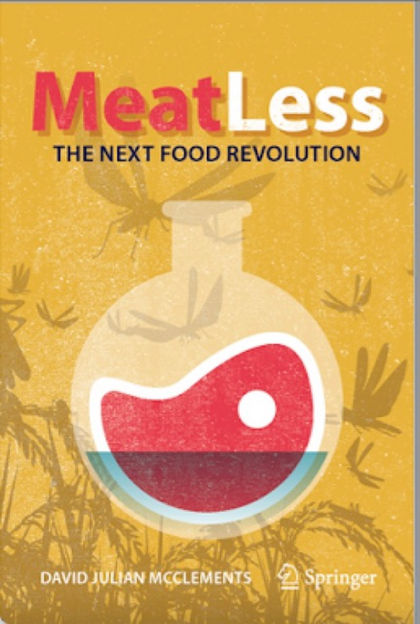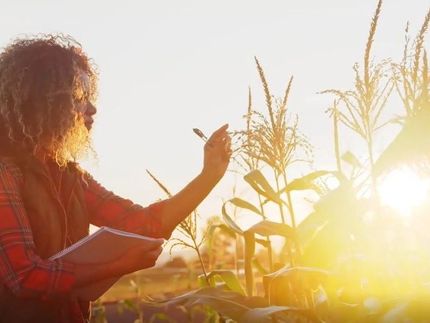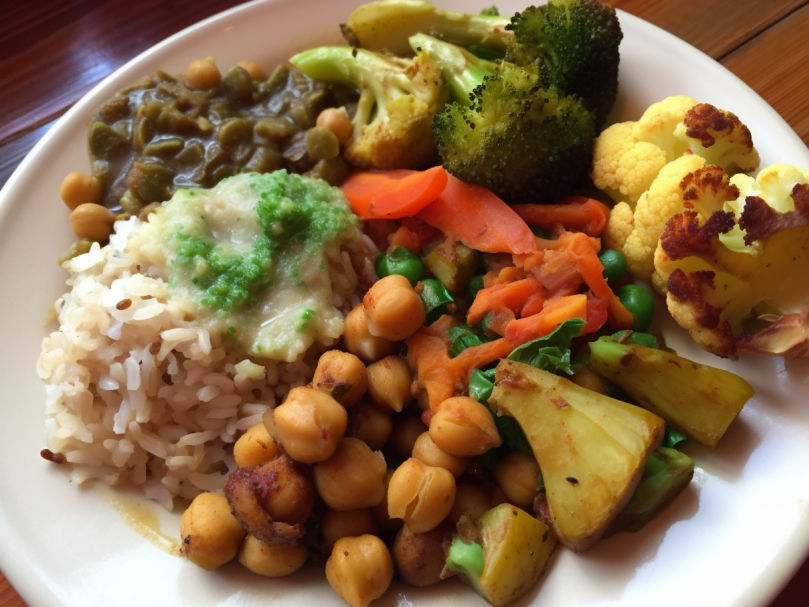Julian Mcclements explains why he is committed to eating meat less
Meat Less: The Next Food Revolution can be preordered now from major booksellers
Distinguished Professor of Food Science and prolific author David Julian McClements has a new book out this month – Meat Less: The Next Food Revolution (Springer, 2023).

Meat Less is David Julian McClements' 11th book.
Springer Publishing
Meat Less describes McClements’ journey to vegetarianism, a shift inspired by his daughter and his ongoing research work on developing healthier and more sustainable foods.
“In writing this book I take the viewpoint that there are no easy answers and that everyone must make the decision to eat meat or not based on their own values,” says McClements, a pioneering scientist who has written 11 books that explore the physics, chemistry and biology of improving the quality, safety and healthiness of foods.
At UMass, McClements is part of a multidisciplinary team that holistically explores the science and technology – including protein chemistry, soft matter physics, food engineering, sensory science, gastrointestinal fate and gut microbiome effects – behind the design and fabrication of plant-based foods that are better for humans and the planet.
In Meat Less, McClements examines the impact of meat consumption on the environment, human nutrition, animal welfare and food safety, delving into how much eating meat contributes to greenhouse gas emissions, pollution, biodiversity loss, antimicrobial resistance and zoonotic diseases (infections that spread between people and animals), as well as their impact on human health and well-being.
He discusses the latest advances in science and technology that are leading to more tasty, healthy and sustainable alternatives to real meat. These plant-, microbial-, lab-grown and insect-based meat analogs mimic the appearance, flavor and texture of meat. “The availability of more of these products will facilitate the worldwide transition to a more environmentally friendly and ethical diet,” McClements says.
At the end of the book, McClements presents his vision of the human diet in 2050.
“In the final chapter, I discuss why I remain a vegetarian and have decided to dedicate the rest of my scientific career to finding sustainable and healthy alternatives to meat,” he says.
Most read news
Topics
Organizations
Other news from the department science

Get the food & beverage industry in your inbox
By submitting this form you agree that LUMITOS AG will send you the newsletter(s) selected above by email. Your data will not be passed on to third parties. Your data will be stored and processed in accordance with our data protection regulations. LUMITOS may contact you by email for the purpose of advertising or market and opinion surveys. You can revoke your consent at any time without giving reasons to LUMITOS AG, Ernst-Augustin-Str. 2, 12489 Berlin, Germany or by e-mail at revoke@lumitos.com with effect for the future. In addition, each email contains a link to unsubscribe from the corresponding newsletter.





























































